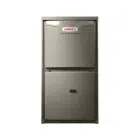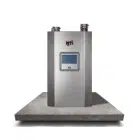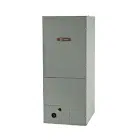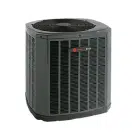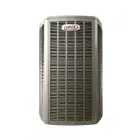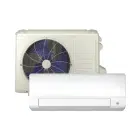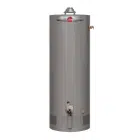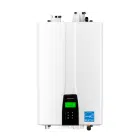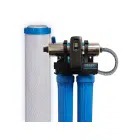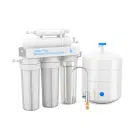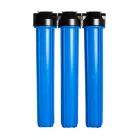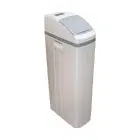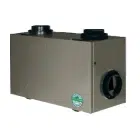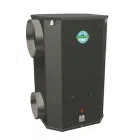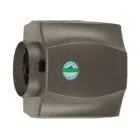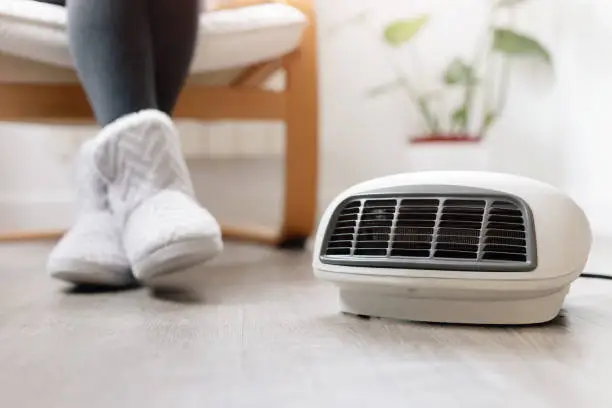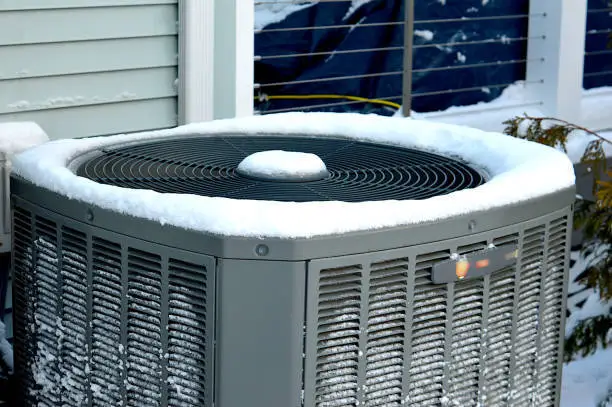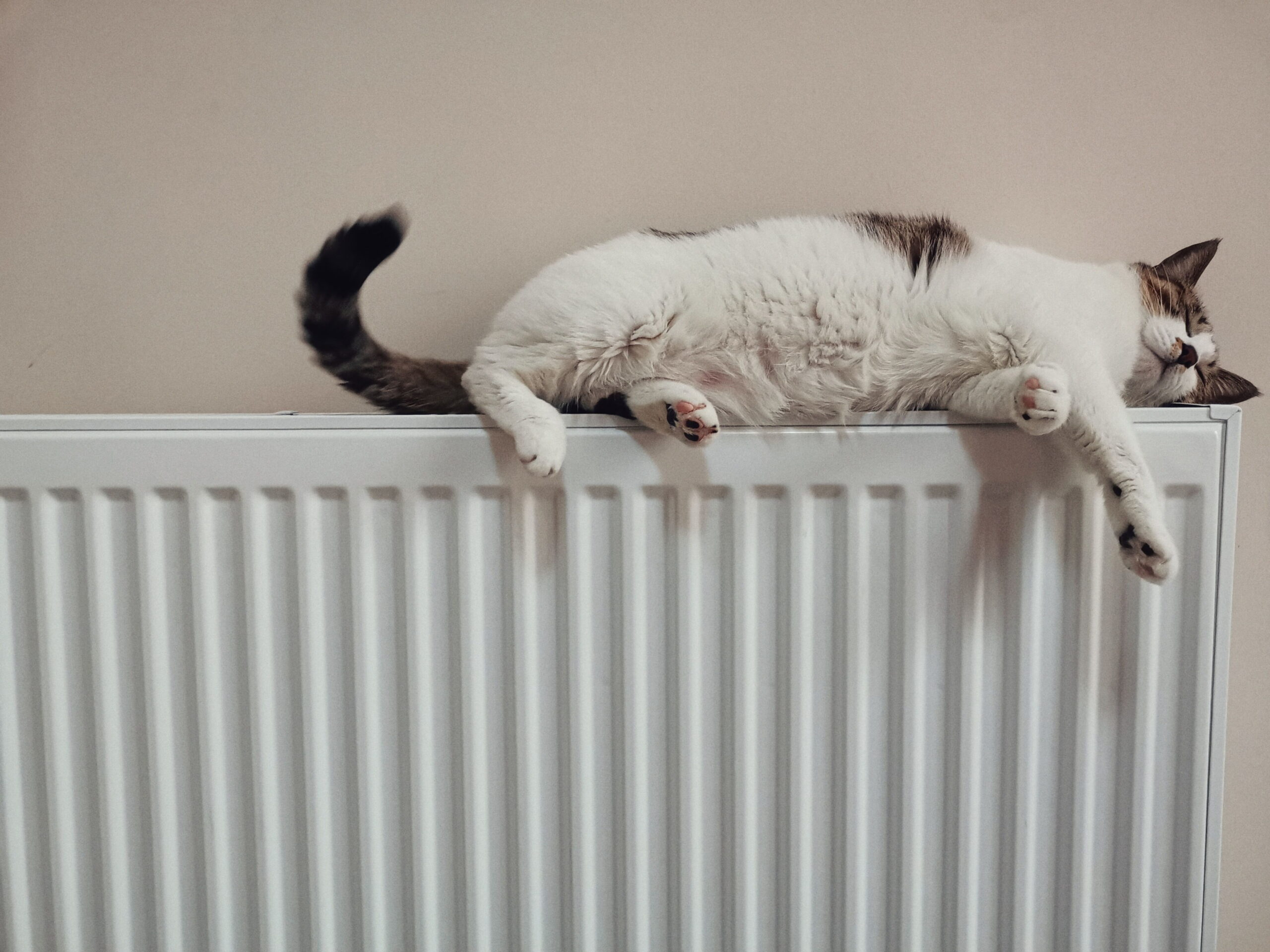
Table of Contents
- What Is Hydronic Heating?
- How Do Hydronic Heating Systems Work?
- Advantages of Hydronic Heating
- How Do Hydronic Systems Minimize Energy Use and Save You Money?
- How Do Hydronic Heating Systems Contribute to Better Air Quality?
- Flexible Fuel Options
- Integration with Smart Thermostats
- Why Hydronic Systems Are the Most Effective Heating Solution in Canadian Climates
- Conclusion
Hydronic heating systems have become increasingly popular in Canada for their efficiency and comfort. Unlike traditional forced-air heating systems, hydronic heating relies on the circulation of hot water or another heated fluid to transfer warmth throughout a building. This system offers numerous advantages, making it a compelling choice for homeowners. Let’s explore the key aspects of hydronic heating systems and figure out if they are the suitable solution for your heating needs.
What Is Hydronic Heating?
Hydronic heating systems operate on the principle of heating water and circulating it through a network of pipes to provide warmth. This can be achieved through various components, including a boiler, pumps, valves, and radiators or underfloor heating systems. Let’s consider all these components in more detail:
- Boiler: The foundational element of the hydronic heating system, the boiler serves as the primary heat source. Available in various configurations, including traditional gas or oil-fired models and modern electric versions, boilers are meticulously designed to elevate water temperatures to a precise range, typically between 140°F and 180°F.
- Pumps: Operating as the circulatory apparatus of the system, pumps play a pivotal role in the efficient distribution of heated water throughout the designated network of pipes. Their function ensures a seamless and uniform dissemination of warmth across the entirety of the heating system.
- Radiators or Underfloor Heating: These elements represent the terminal points of heat exchange within the system. Radiators, employing convection principles, and underfloor heating, employing radiant heat transfer, function as conduits through which the thermal energy from the heated water is released, contributing to a uniform and ambient heating experience.
- Thermostats and Controls: Serving as the orchestrators of the heating process, thermostats, and controls provide users with a sophisticated interface to regulate and fine-tune the temperature settings of individual rooms or zones. This level of control not only enhances comfort but also optimizes energy consumption.
As you can see, hydronic heating systems offer a reliable and efficient way to keep your home warm during the chilly Canadian winters.
How Do Hydronic Heating Systems Work?
Hydronic heating systems operate through a systematic process that begins with the boiler’s controlled heating of water to temperatures ranging from 140°F to 180°F. This heated water is then propelled through a network of pipes by circulatory pumps, facilitating an efficient distribution of warmth. Upon reaching radiators or underfloor heating systems, the water engages in radiant heat transfer, releasing warmth into living spaces. Subsequently, the cooled water returns to the boiler, completing a continuous cycle.
The elegance of hydronic heating lies in its simplicity and efficiency, offering a reliable means of maintaining comfortable indoor temperatures. The controlled circulation of heated water ensures a consistent and even distribution of warmth throughout the home, providing both comfort and energy efficiency.
Advantages of Hydronic Heating
In the realm of home heating, hydronic systems emerge as a paragon of efficiency and comfort. As we delve into their advantages, it becomes evident why an increasing number of homeowners are turning to this innovative heating solution.
1. Energy Efficiency: Hydronic systems are lauded for their energy efficiency, potentially translating to cost savings on your energy bills and a reduced environmental footprint.
2. Zoning and Customization: Imagine having the power to dictate the temperature in different rooms or zones of your home independently. Hydronic systems provide this level of customization, offering both comfort and energy savings.
3. Quiet Operation: Bid farewell to the intrusive hum of traditional heating systems. Hydronic systems operate quietly, allowing you to enjoy the warmth without the background noise.
4. Comfort and Health Benefits: Experience a new level of comfort as radiant heat eliminates drafts and minimizes dust circulation. Your home becomes not just warm, but a haven of well-being.
5. Long Lifespan and Low Maintenance: With proper care and regular boiler maintenance, hydronic systems boast a longer lifespan compared to their counterparts. Investing in durability can pay dividends in the long run.
Still not sure if the boiler is a suitable solution for your existing home? Reach out to HVAC Service Solution via the link below, and we will be happy to help you make the informed choice.
How Do Hydronic Systems Minimize Energy Use and Save You Money?

The integration of hydronic heating systems is synonymous with a prudent approach to energy consumption, translating directly into substantial cost savings. The closed-loop distribution network ensures efficient heat transfer, eliminating energy wastage associated with uneven heating. This precision in heat distribution not only optimizes comfort levels but also significantly reduces the overall energy demand required for maintaining an ideal indoor climate.
Furthermore, the zoning capability of hydronic systems introduces a targeted approach to energy use. You can customize heating in specific areas or rooms, diverting energy only where it is needed, and avoiding unnecessary heating of unoccupied spaces. With the ability to adapt temperatures based on usage patterns and external conditions through modern thermostats, hydronic systems epitomize an intelligent and cost-effective solution, contributing not only to enhanced living comfort but also to the long-term financial well-being of homeowners.
How Do Hydronic Heating Systems Contribute to Better Air Quality?
Hydronic heating systems distinguish themselves by contributing to superior indoor air quality, particularly when compared to traditional furnaces. Unlike forced-air systems, which can circulate dust and allergens, hydronic systems operate without the need for air movement. The absence of forced air reduces the circulation of airborne particles, leading to a cleaner and healthier living environment. Additionally, the radiant heat transfer employed by hydronic systems minimizes the disturbance of dust settled on surfaces, further improving air quality.
Find out how you can improve air quality in your home in a few simple steps in our previous article.
Flexible Fuel Options
One of the distinguishing features of hydronic heating systems lies in their adaptability to a diverse range of fuel options, catering to the varied preferences and infrastructural considerations of homeowners. This flexibility underscores the system’s capacity to align with the unique energy landscape of individual households.
Below, you will find the 3 most common types of hydronic heating systems.
Gas-Powered Hydronic Systems
Gas-fired boilers, commonly fueled by natural gas or propane, stand as stalwarts of reliability and efficiency. The combustion process in these systems produces a consistent and ample heat supply, making them a popular choice for those seeking a traditional yet robust solution.
Electric Hydronic Systems
For homeowners prioritizing sustainability and simplicity, electric hydronic systems emerge as compelling alternatives. These systems eschew combustion, relying on electricity to heat the water. Although they may have higher operational costs, electric systems eliminate the need for gas lines, providing installation flexibility.
Propane-Powered Hydronic Systems
Propane, renowned for its portability and clean-burning properties, is a favored fuel choice for hydronic heating. Propane boilers offer an efficient and eco-friendly heating solution, particularly in areas where natural gas infrastructure may be limited.
The flexibility in fuel options positions hydronic heating systems as adaptable solutions in diverse geographic and infrastructural contexts. Find your perfect boiler on our official website via the link below. We will help to choose the one that best suits your needs
Integration with Smart Thermostats
Smart thermostats empower users with unprecedented control over their hydronic systems. Through intuitive interfaces and mobile apps, homeowners can regulate temperatures remotely, ensuring optimal comfort while minimizing energy consumption. The adaptive learning capabilities of these thermostats further enhance efficiency, adjusting heating patterns based on usage patterns and external factors.
The integration of hydronic systems with smart thermostats extends beyond mere temperature adjustments. You can seamlessly incorporate your heating systems into broader home automation ecosystems. This interconnectivity allows for coordinated energy management, integration with other smart devices, and the creation of customized heating schedules, fostering a comprehensive and intelligent approach to home comfort.
Why Hydronic Systems Are the Most Effective Heating Solution in Canadian Climates
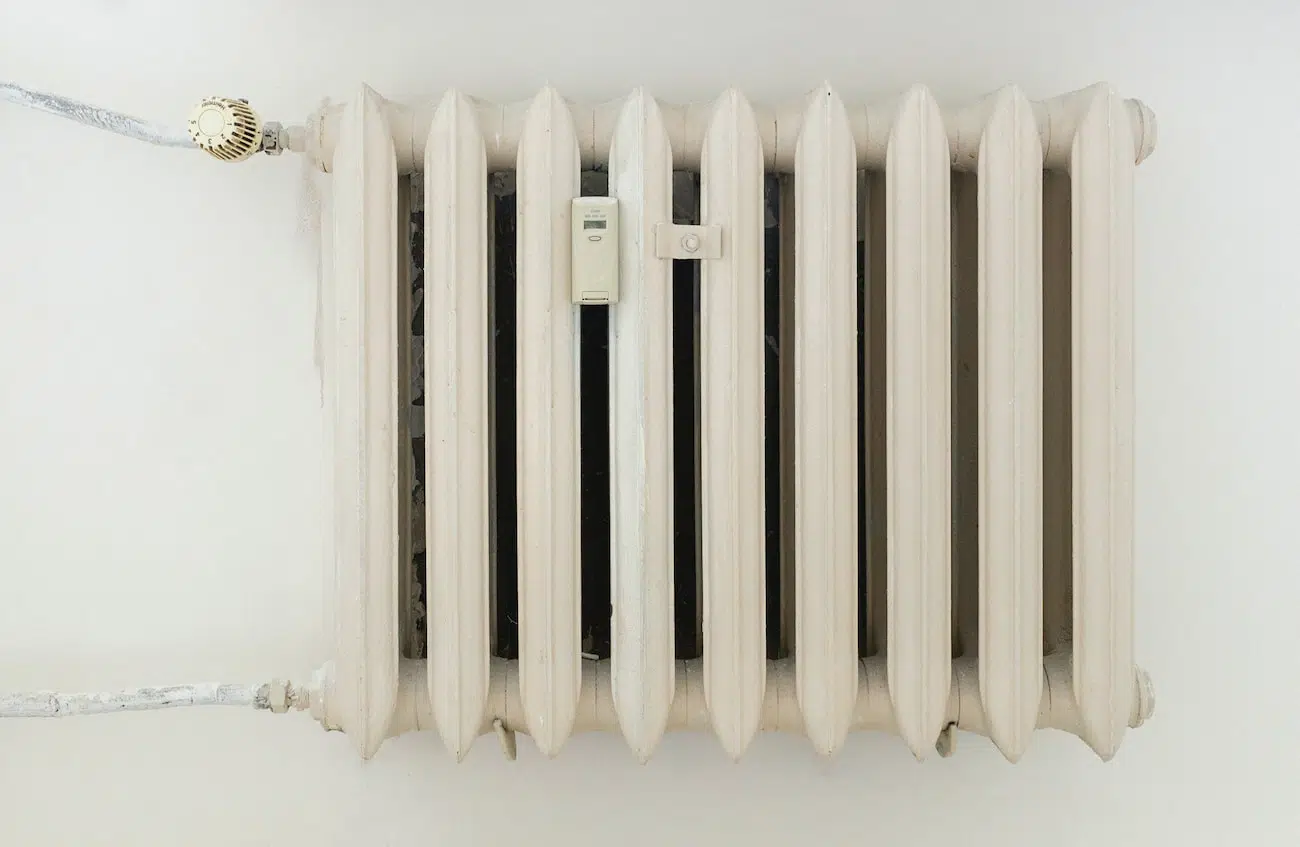
In the challenging backdrop of the Canadian winter, hydronic heating systems stand out as resilient and effective solutions. Their ability to provide consistent and even heating, resist freezing, and prevent ice buildup makes them particularly well-suited for the harsh conditions of the Canadian climate. Unlike some traditional heating systems that may struggle in extremely low temperatures, hydronic systems ensure reliable operation, offering homeowners a dependable and efficient heating solution to combat the rigors of winter. With their capacity to maintain warmth and prevent cold spots, hydronic heating systems prove to be a steadfast ally in the quest for comfort in the face of Canada’s winters.
Conclusion
In the landscape of home heating, hydronic systems emerge as versatile, efficient, and resilient solutions. From their ability to tailor comfort through zoning to their positive impact on energy savings, air quality, and performance in harsh climates, hydronic heating systems redefine the standard for modern home heating.
Discover the transformative benefits of hydronic heating systems with HVAC Service Solutions. As experts in the field, we offer a range of boilers and comprehensive services, including installation, maintenance, and repair. Elevate your home heating experience — contact us today for a free consultation.
Share
